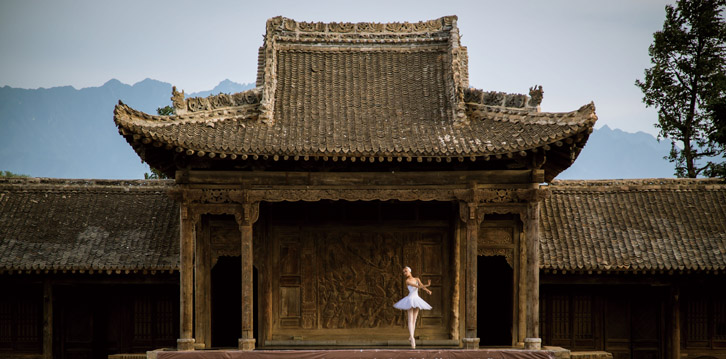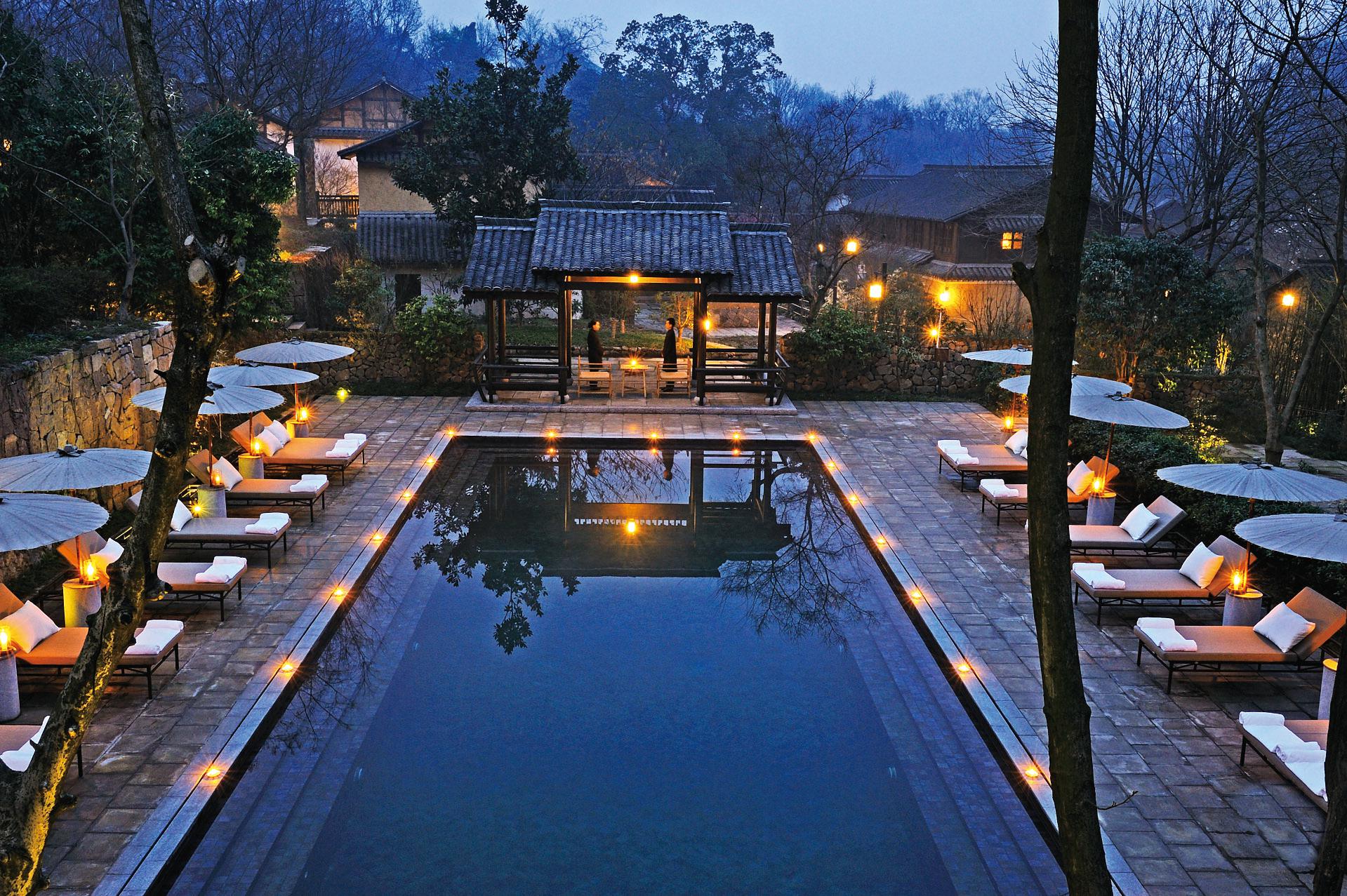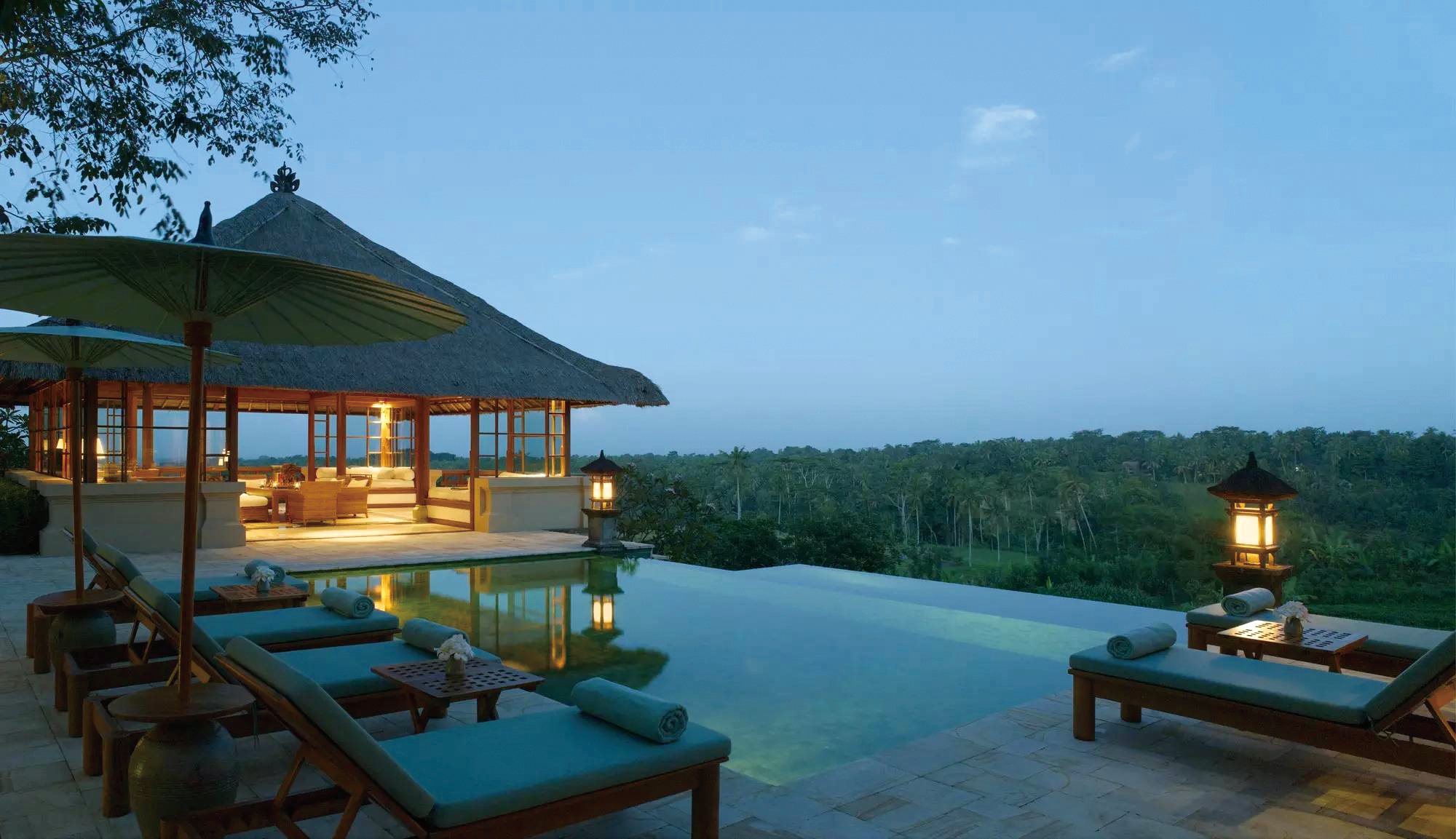起:数字时代下如何打造目的地产品?

改变:目的地概念趋于泛化
“目的地”其实是个既古老又新锐的概念。说其古老,是因为它是与旅游活动相伴而生的第一代元老级旅游概念;说其新锐,是因为在互联网时代新的市场环境中,目的地的概念与价值都发生了重大改变,必须用新的眼光重新审视。现在,当我们谈论目的地的时候,不为抵达,却为出发。
随着旅游活动日益丰富多元,目的地的概念已经不局限于传统的景区或行政区,而是泛化到一个更具包容性的范畴。最直接的体现是,在吃住行游购娱的旅游六要素中,如果说“游”代表的是传统目的地,那么其他5项都在由配套服务向泛目的地转化。比如“住”,随着“宅游”概念的兴起,一些休闲功能完备的酒店本身也成了目的地。再如“行”,邮轮已经成为国人日渐熟悉并喜爱的目的地选择;而自驾的兴盛、川藏线骑行这样的活动都在让“在路上”本身成为移动的目的地。同样以“娱乐” “饮食”、“购物”为主打目标的旅游目的地也不在少数。
目的地概念的泛化,表明旅游活动正在向多样化、精细化、深度化转变。近几年深度游成为目的地领域最热的概念,人们不再满足于“下车拍照上车睡觉”,而是热衷于探究细节,发现未知之地,对“传统”或“既定”的目标缺乏兴趣。定制旅游的兴起也出于类似的原因,创造新的、个性化的目的地成为一种潮流。
趋势:打造旅游微目的地
进入全域旅游、全民休闲度假时代,纯观光的景点游逐渐受冷落,酒店民宿逐渐成为度假目的地,不少非标住宿甚至成为文化创意的展示空间和时尚生活的体验空间,功能设施更齐全、设计更有特色,满足了人们通过住宿特色酒店体验别样生活的愿望。基于此,越来越多的产品拥有了“目的地”属性,逐渐成为“大目的地”中的“微目的地”。
“旅游微目的地”定义中,涵盖了包括酒店、民宿客栈等产品在内,以住宿功能为主要载体,且满足吃、住、行、游、购、娱全方位旅游目的地要素的多样产品。此外,让游客停留一定时间的住宿体验也是定义“微目的地”的重要条件,为体验酒店而来,并非因酒店在此而做出选择,住宿本身,需要有足够的魅力。
安缦,无疑是最有发言权的代表。作为酒店品牌,安缦甚至如同“偶像明星一样拥有属于自己的粉丝:安缦痴”(Aman Junkie)。在安缦痴看来,“满世界住安缦”就是旅行的最高境界,安缦就是他们理想中的旅行目的地。安缦的独到之处都来源于她的哲学——“宁静与平和、独一无二、家的感觉”。安缦主张最大化地发扬本地原始文化与自然景观的张力,崇尚自然与绿色,远离纷扰的世事和嘈杂。在选址上,每一家安缦都有独特的意图与追求,力争实现艺术与景观的完美结合。安缦伊卡(AMAN-I-KHÁS)地处印度拉贾斯坦邦拉萨布罗国家公园( Ranthambore National Park),这座帐篷里没有一面实体墙。豪华帐篷酒店已经不稀奇了,可安缦伊卡的不同之处就在于它并不是长期开放,而是仅在每年10月至次年5月开放,因为这个时段是萨布罗国家公园里观赏野生动物的最佳时机。在最合适的地点、最合适的时间,住在最合适的帐篷里,原始、野性之美扑面而来。
与当地文化的自然融合一直是安缦的经典标志。在建筑方面,安缦会选取带有深刻文化烙印或文化传承的建筑形式,传达当地的建筑文化精髓。以安缦法云为例,酒店的前身是一个叫做“法云村”的古村落,安缦在村子的基础上改建成酒店,原来的格局、结构和原始村落的木头及砖瓦都被很好地保留了下来,房间以不同形式遍布于整个小村庄中,毫无违和感。除了在建筑上协调、不露声色地融入,每一家安缦酒店都对属地文化进行了充分挖掘,以确保入住体验的独特性。

营销:深耕内容,引领需求
目的地定义的转变不仅影响着住宿业的变革,从某种程度上来说,也在引导者游客旅游方式的改变。旅游人次的增加以及旅游经济的飞跃式发展必然会导致人们旅游消费观念的转变,标准化产品在很大程度上已经无法满足顾客的需求。人们渴望的旅游体验是烙下自己标签的、特立独行的、有别于他人的,以此来彰显个性、表达主张。定制旅游,无论是产品本身,亦或者提供的服务,在当下被需求的程度一路走高。
定制旅游模式应运而生,并在近几年得到了高速发展。而复星集团旗下的Club Med(地中海俱乐部)的一价全包模式,深耕文化内容,很可能代表着未来旅游业发展的方向。
Club Med 所倡导的一价全包服务,堪称对传统旅游模式的颠覆。区别于团队旅游和自助游的以景点为目的的模式,Club Med注重于对度假村整体的把控。无论是住宿、交通、服务还是娱乐都深植本土,又经过了精心的融合打造,有足够的个性化和定制感,赋予度假村以个性,好的个性和定位成就内容,串通连接了生活方式、深度体验、人文情怀等元素。
随着中国人的旅游模式逐渐从跟团观光向自助休闲度假转变,中高端的旅游度假市场初具规模。尤其是家庭亲子游市场在近几年规模化爆发,带来了很大的市场想象空间。复星集团董事长郭广昌曾表示,他认为地中海俱乐部非常适合中国人以家庭为组织的生活方式。商业形态的改变背后,是文化的融合。在中国人的生活方式文化中,其实是缺乏度假传统的,而Club Med试图改变这一点,在原有的调性上加上本土化的元素至关重要。相关度假村根据所在地的特色设定不同主题,例如亚布力度假村主打滑雪,桂林度假村主打山水,三亚度假村主打海滩,即将开业的安吉度假村则主打茶园文化。

How to Design Destination Products in the Digital Era?
No matter how fast the tourist industry develops, the destination has always been the focus of every vacation trip. In the digital era, the complexity of the product development and its product valuation relies on various factors. But only when the destination is fully studied can a satisfying destination product be made.
Transformation--the Concept of Destination
Just as a coin has two sides,the term “destination”can have an old meaning as well as a new one. On the one hand,it almost starts at the same time when the idea of travel come into being a long time ago. On the other hand, today’s digital development has a profound influence on the idea of the term ‘destination’,which requires a second thought.
Now, the term ‘destination’ is no longer the idea of simply getting to destinations such as scenic sites or administrative areas.Rather, it is more of an umbrella term that covers six elements of tourism--Eat, Stay, Transport, Landmarks, Shopping, and Entertainment. If ‘Landmarks’ refer to the traditional idea of getting to places, then the other five elements are transforming into a wider concept.
Tendency--the Design of ‘Micro-destination’
There is a tendency that hotels,as well as hostels, have now become a new destination, because more and more non-standard hotels or hostels have transformed themselves into a creative space where the idea of space, experience, and fashion are highlighted.In this light, more and more products becomes ‘destination’ themselves. Since they are smaller in terms of scale, they are therefore called ‘Micro-destination’.The definition of ‘Micro-destination’ allows hotels or hostels no longer limited to a place to stay,moreover, it includes the afore-mentioned five other elements--Eat, Stay, Transport, Landmarks, Shopping, and Entertainment, aiming to provide tourists a wonderful stay.
Here, Aman Resorts stands out for its excellence. Aman Resorts even has its own fans-- Aman Junkie. In the eyes of Aman Junkie, the ultimate goal of travel is to visit all of Aman Resorts in the world, because for them, Aman Resort is the perfect destination. What sets Aman Resorts apart from others is its philosophy that fits the idea of home into local landscapes, creating an atmosphere that embraces the local culture while keeping its own distinctive features.
Marketing-- Drive the Tourists’ Needs
The all-inclusive vacations packages offered by Club Med might gives a hint of the future development of tourism. This kind of all-inclusive vacations packages challenges the idea of traditional model of tourism. This is because instead of group tour or self-service tour that features scenic sites, Club Med focuses on the whole resort. It aims to provide vacation packages that have all the necessary ingredients of a dream holiday in which tourists will feel private, safe, and intimate at the same time.
As more and more Chinese tourists switch from group tour to self-service tour, a medium and high-end holiday market has taken shape, especially family tour. Guo Guangchang, the chairman of Fosun Group, has said that in his opinion, Club Med fits the way Chinese travel nicely. Although traditional Chinese lifestyle lacks the idea of holiday, Club Med is trying to adjust to it by adding local elements to each resort specifically. For instance,the Anji Resort opening soon features tea culture and the Guilin Resort features beautiful scenery.
本网站部分图片来源于网络,如有侵权,请联系780236430@qq.com ,我们会在5个工作日内查证删除。图片其版权均归原作者及其网站所有。


